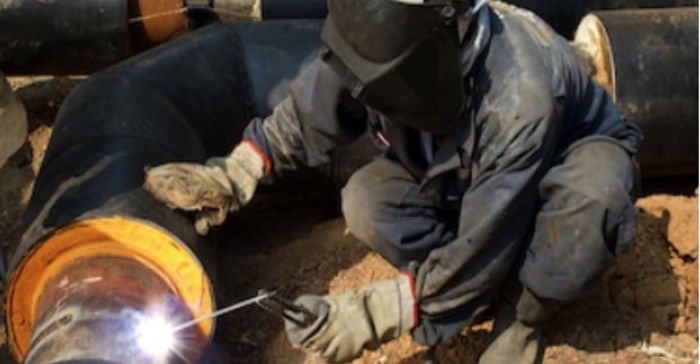
Top stories






More news


Marketing & Media
Ads are coming to AI. Does that really have to be such a bad thing?














Mike Smart, IFPA chairman, explained that this decision was taken in the interest of ensuring consistent quality installations. IFPA was formed by SAPPMA to expand regulation of the plastic pipe industry in Southern Africa, and open to all fabricators and installers of plastic pipe, as well as suppliers of pipe fittings and related equipment.
“A good weld is of paramount importance to ensure a good installation. However, owing to the fact that conditions change from site to site and the ever-present possibility of poor quality from unethical suppliers, we felt it necessary to qualify welding procedures and jobs in line with SANS 10270:2015 standards. This is in line with our mandate of ensuring a consistently high standard of fabrication and installation and ensuring peace of mind to customers,” Smart clarified.
A simple process explained prior to the installation, a contractor (preferably an IFPA member), will be responsible for compiling a preliminary welding procedure specification (P-WPS). This will be submitted to the customer for approval.
Upon approval, the inspector (with a thermoplastic welding inspection certificate of competence from Plastics SA) will be required to witness the qualification weld.
“On the day of the qualification weld, the inspector will inspect the contractor’s premises or site to ensure that the contractor will be able to reproduce the work to the standard that is required for the welding procedure approval test. The inspector will also inspect the contractor’s welding equipment in line with requirements of the relevant South African national machines and equipment standard, such as SANS 1671:2007 - Part 1: Heated-tool welding,” Smart explained.
Other information that will be recorded by the inspector includes the identity of the welding personnel, the welder’s credentials and welding certificate (as per the requirements of SANS 10269) and the identification and traceability of the welding materials used, e.g. pipes and fittings.
“The weld will need to be done and checked against the P-WPS. The inspector will be allowed to stop the test at any time if the welding procedures, as set out in the P-WPS, are not adhered to, or if it becomes apparent that the welding personnel do not have the necessary skill,” he said.
If the qualification joints are in accordance with the provisions of the P-WPS, the weld is visually inspected (to SANS 10268:2009 - Part 10: weld defects) and the inspector will then complete a certificate of compliance with the P-WPS. The inspector will also submit the joints for tests in accordance with SANS 6269:2005, namely a bend test, tensile test (in order to determine the weld factor) and a tensile-creep test.
Upon completion of the tests, the inspector will be responsible for completing a welding procedure specification qualification report (WPS-QR) and the PWPS can then be reissued as the final welding procedure specification (WPS).
The inspector will also issue a qualification file to the contractor which consists of WPS, the certificate of compliance, the WPS-QR, a report on each of the destructive tests, and the test specimens tested before handing over the qualification file to the customer at the end of the project.
The qualification obtained will be limited to the machine, welder, process and materials as recorded during the qualification weld, although the inspector may also be requested by the customer to inspect random welds (quantity or percentage to be specified by the customer) while he is on site.
A separate report will need to be issued for each inspection, and welds can also be subjected to the third party testing (if required) to ensure that the correct procedures are followed for the duration of the project.
“The thermoplastic welding industry is experiencing rapid growth and continues to attract large numbers of new welders each year. For this reason, it is important to ensure that the welding jobs meet industry standards and are performed by properly qualified personnel. We are confident that the decision to qualify welding jobs and procedures will be an important step to take the industry forward and ensure top-quality installations that will last for many years,” Smart concluded.